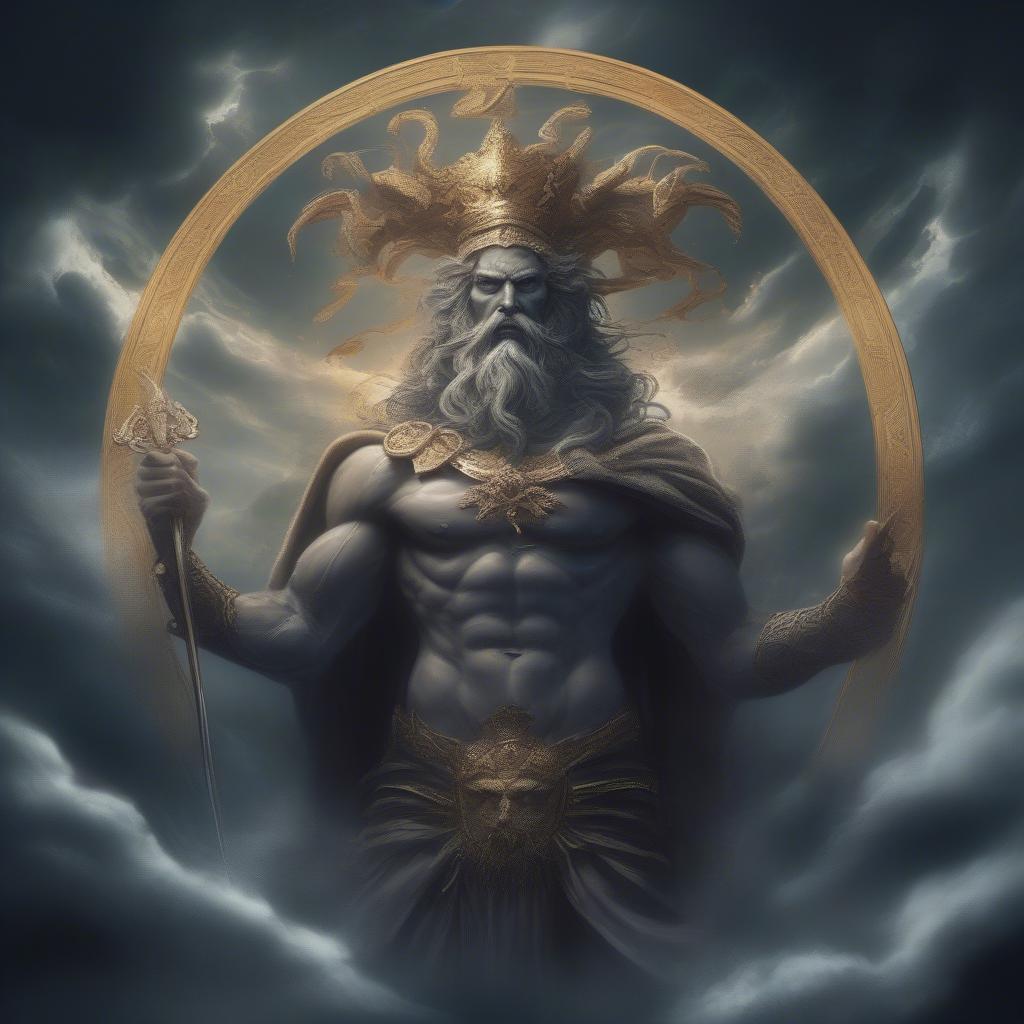
Zeus, the thunder-wielding king of the Olympian gods, is a figure instantly recognizable in Western culture. But who is Zeus’ father, the man who sired this powerful deity? The answer lies in the complex and often tumultuous world of Greek mythology, where power struggles, betrayals, and titanic clashes shaped the very fabric of existence. Zeus’ father is Cronus, a Titan and ruler of the cosmos before the Olympian gods ascended to power.
Table Content:
Cronus himself was the son of Uranus (the sky) and Gaia (the earth). He rose to power by castrating his own father, Uranus, at Gaia’s behest. This act, violent and disruptive, established a pattern of conflict that would continue to influence the divine generations that followed. A prophecy foretold that Cronus would be overthrown by one of his children, just as he had overthrown his father. Driven by fear and a desperate need to maintain his reign, Cronus took a drastic and horrific measure: he swallowed each of his children as soon as they were born.
Hestia, Demeter, Hera, Hades, and Poseidon all met this grim fate, imprisoned within their father’s stomach. However, when Rhea, Cronus’ wife and sister, gave birth to Zeus, she couldn’t bear to see another child consumed. She devised a plan to save her youngest son. Rhea secretly gave birth to Zeus on the island of Crete and then presented Cronus with a stone wrapped in swaddling clothes, which he promptly swallowed, believing it to be his newborn son.
 Zeus' Father Cronus in Greek Mythology
Zeus' Father Cronus in Greek Mythology
Hidden away in a cave on Mount Ida, Zeus grew to adulthood, nurtured by nymphs and protected by the Curetes, who clashed their spears and shields to mask the infant god’s cries. When Zeus reached maturity, he confronted his father and, with the help of Metis (wisdom), forced Cronus to regurgitate his swallowed siblings. This dramatic liberation marked the beginning of the Titanomachy, a decade-long war between the Titans, led by Cronus, and the Olympians, led by Zeus.
The Titanomachy was a brutal and earth-shattering conflict that reshaped the cosmos. Zeus and his siblings, armed with powerful weapons forged by the Cyclopes, ultimately triumphed over the Titans. Cronus and the other defeated Titans were imprisoned in Tartarus, the deepest and darkest part of the Underworld. With Cronus overthrown, Zeus claimed his rightful place as the king of the gods and ruler of Olympus.
 The Titanomachy: Zeus versus Cronus
The Titanomachy: Zeus versus Cronus
The story of Zeus’ parentage is a powerful allegory for the cyclical nature of power and the inevitable clash between generations. It also highlights the importance of cunning and strategy in overcoming seemingly insurmountable obstacles. While Cronus represents the old order, clinging to power through fear and violence, Zeus embodies a new era of leadership, based on strength, wisdom, and justice. His victory over his father symbolizes the triumph of order over chaos and the establishment of a new divine order that would shape the course of Greek mythology.
 Zeus, King of the Olympian Gods
Zeus, King of the Olympian Gods
The legacy of Cronus as Zeus’ father serves as a constant reminder of the turbulent past and the hard-won victory that established Zeus’s reign. This complex familial relationship adds depth and nuance to the character of Zeus, highlighting the burdens of his inheritance and the challenges he faced in securing his position as the supreme ruler of the Olympian gods.
In conclusion, understanding who is Zeus’ father is key to grasping the complex dynamics of Greek mythology. The story of Cronus and Zeus is not simply a tale of familial conflict but a powerful narrative that explores themes of power, destiny, and the enduring struggle between order and chaos. This story continues to resonate with audiences today, reminding us of the cyclical nature of history and the enduring power of myth.
FAQ
- Who were the Titans in Greek mythology? The Titans were the primordial deities who ruled the cosmos before the Olympian gods. They were the children of Uranus (sky) and Gaia (earth).
- Why did Cronus swallow his children? Cronus swallowed his children because of a prophecy that foretold he would be overthrown by one of them.
- How did Zeus escape being swallowed by Cronus? Rhea, Zeus’s mother, tricked Cronus by giving him a stone wrapped in swaddling clothes instead of the baby Zeus.
- What was the Titanomachy? The Titanomachy was a ten-year war fought between the Titans and the Olympians for control of the cosmos.
- Where is Cronus imprisoned? Cronus is imprisoned in Tartarus, the deepest and darkest part of the Underworld.
- What are Zeus’s symbols? Zeus’s symbols include the thunderbolt, eagle, and aegis.
- What role does Zeus play in Greek mythology? Zeus is the king of the gods, ruler of Olympus, and god of the sky, thunder, lightning, law, order, and justice.
